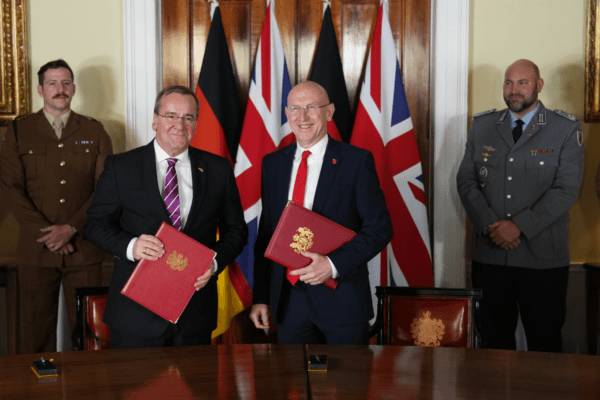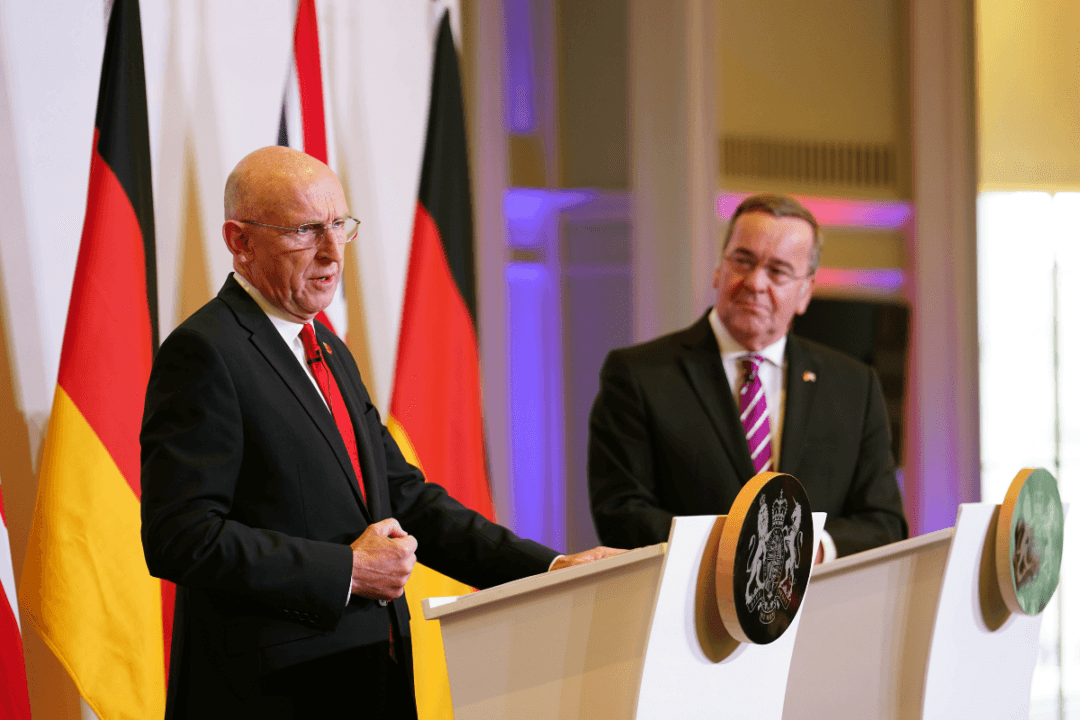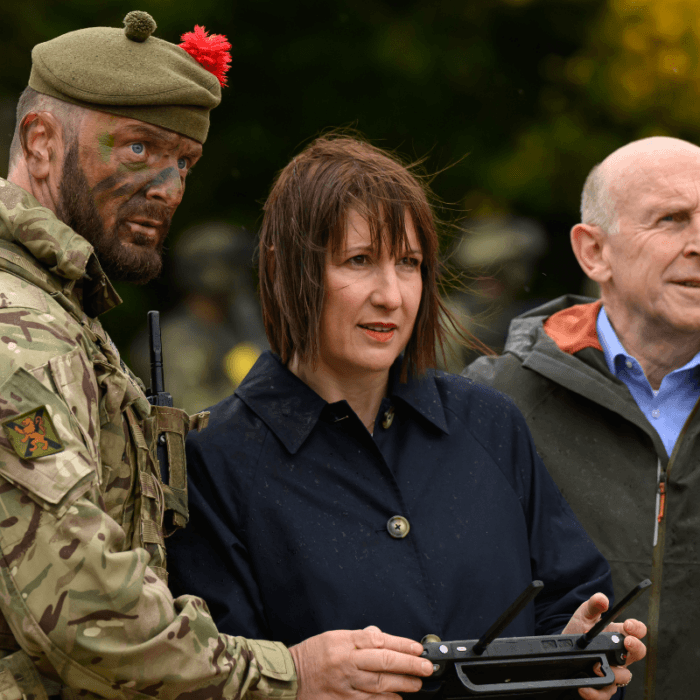The UK has signed a defence pact with Germany that will see German military aircraft operate out of a base in Scotland and the opening of new artillery gun barrel factory.
Defence Secretary John Healey and his German counterpart, Boris Pistorius, signed the Trinity House Agreement in London on Oct. 23, which includes agreements on defence projects and industry as well as new joint work on providing support to Ukraine.
The Ministry of Defence described the deal as a “first-of-its-kind” between Europe’s two largest defence spenders, which the department said “will strengthen national security and economic growth in the face of growing Russian aggression and increasing threats.”
In a statement issued on Oct. 22, Healey called the Trinity House Agreement a “landmark” agreement, symbolising “a milestone moment” in the UK’s relationship with Germany and “a major strengthening of Europe’s security.”
“It secures unprecedented levels of new cooperation with the German Armed Forces and industry, bringing benefits to our shared security and prosperity, protecting our shared values and boosting our defence industrial bases,” he said ahead of the meeting with Pistorius.
Boost to British Industry
Joint German–British projects will cover air, sea, land, and cyber domains, which Pistorius said will strengthen the European pillar within NATO.The German defence minister said: “We must not take security in Europe for granted. Russia is waging war against Ukraine, it is increasing its weapons production immensely and has repeatedly launched hybrid attacks on our partners in Eastern Europe.”
Among the measures outlined in the agreement is the opening of the Rheinmetall factory in the UK, which will produce artillery gun barrels using British steel produced by the steel production and engineering company Sheffield Forgemasters; it will be the first time in 10 years the UK has produced the armament. The government says this venture will support 400 jobs and bring half a billion pounds into the economy over the span of a decade.
Further joint defence industry projects include a long-term commitment to manufacturing Boxer armoured vehicles and promoting procurement of the UK’s Lightweight Torpedo Stingray Mod 2 for maritime patrol aircraft.
German P-8A Poseidon aircraft will be periodically operating out of Lossiemouth, Scotland, to support anti-submarine warfare operations in the North Atlantic.
Support for Ukraine
Other measures include strengthening NATO’s Eastern Flank and extra materiel support to Ukraine, namely equipping German Sea King helicopters with modern missile systems for use by Kyiv’s military.
In a joint statement following the agreement’s signing on Oct. 23, Healey and Pistorius said they were “committed to working together for as long as it takes to support and enable Ukraine to counter Russian aggression.”
They added, “Our combined will is unequivocal; we will continue to ensure Ukraine has the military capabilities it requires.”







